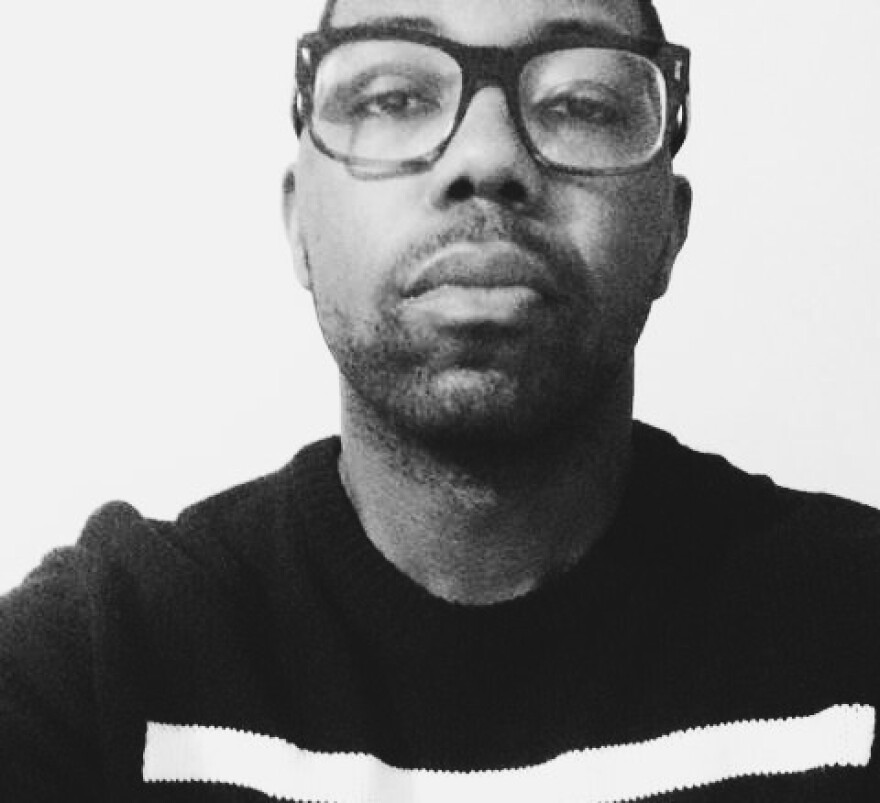Last week’s mass shooting in Wilkinsburg provoked strong reactions within the neighborhood, across the city and in national media.
Writer and former Wilkinsburg High School teacher Damon Young offered one of them on his blog, Very Smart Brothas.
He writes that crime, failing schools and declining property values are "not unintended coincidences or even unfortunate inevitabilities," but "intentional results of Pittsburgh’s decades-long disregard of its black population.”
90.5 WESA’s Josh Raulerson asked Young to elaborate.
"These situations, these instances, they don't happen in a vacuum," Young said. "For a person like me who's grown up in Pittsburgh, I'm in a position now where I'm able to afford certain things. There's a bit of cognitive dissonance going on. I'm writing about this stuff, about these changes and about the gentrification and displacement. But I'm also living in an example of it."

Young said he wrote his piece as a result of something he read in The New York Times or The Washington Post. It was "something of that stature," he said, that in the lead paragraph referred to Wilkinsburg as a suburban neighborhood.
Young: "I just saw that and I was thinking, 'OK, well the people who aren't familiar with Wilkinsburg nationally are going to see that and might assume (it's) a suburb in the way Robinson is a suburb or the way Mt. Lebanon is a suburb. The common associations that many of us have with suburbs -- better schools, tree-lined streets, a business district (and) kids riding their bikes in the street, which happens in Wilkinsburg, too. Don't get me wrong."
Raulerson: "That right there was the most interesting thing to me about your post. For about an hour there Thursday morning, it was a national story. And then, suddenly it wasn't."
Young: "Exactly. I actually first heard about this when it was trending, and I see, 'Oh, spree shooting?' A mass shooting in Wilkinsburg. When you see a headline like that, you immediately assume some lone guy walks into an office building, (or) walks into a gym and then starts blazing away. Which, unfortunately happens quite frequently in this country. But after you click on the story, you hear, 'Oh, this is something that happened to black people in a black neighborhood, happened at a cookout. It doesn't seem to be random.' Once people started learning those factors, it does seem like this story kind of fell off the national radar."
Raulerson: "How do you think the local media have done covering this?"
Young: "I think the local media has done a good job. We'll see next week, and in the coming weeks, if they find a way to frame this and provide a larger, bigger context about Wilkinsburg and about the city of Pittsburgh. We're getting all this positive coverage, all this national attention. NPR was here last week with that great panel all about the city's revitalization, but there's another side to it. As I said in the piece, it's almost like we have the national coverage -- we have people coming over -- so we need to, you know, put all our junk in the closet. Don't really even bother cleaning up for real, you know, just throw it in the closet right now 'til people come over, so they can't see it. That's kind of how it feels."
Raulerson: "When you look at this 'new Pittsburgh' stuff and the very close proximity of Wilkinsburg to East Liberty and everything that's happening there, do you see anything that makes you hopeful about those communities' future?"
Young: "I do think that the people who are, I guess, leading much of this revitalization, much of this change. And even the gentrification, it does feel like at least they are starting to at least listen. There have been quite a few talks and forms -- all types of things that, you know, are bringing people from the East Liberty community and people from the business community and people from the political community together just to talk about what's happening. So I do think that is a positive step."
Raulerson: "What needs to happen after that beyond the discussion, though?"
Young: "Well I think that having these diverse rooms and having these diverse discussions, they can't just be window dressing. This has to be an ongoing conversation. As far as how that happens and what would happen after that, I can't tell you. I'm a writer. I'm not a policy person. I'm not a politician. I don't work for Walnut Capitol, so I don't know. But I do think that it's vital to at least have different interests and different voices in the room."
Raulerson: "Damon, thanks for bringing your voice to our room today."
Young: "Oh no, thanks for having me."





